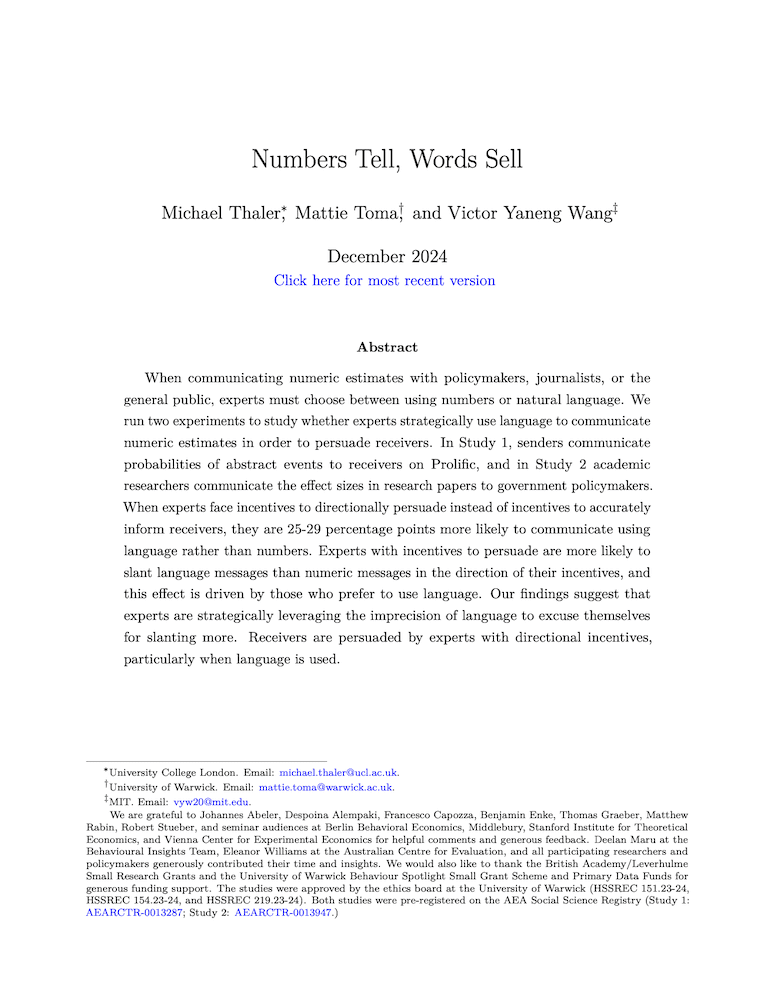Numbers Tell, Words Sell
Michael Thaler (University College London), Mattie Toma (University of Warwick) and Victor Yaneng Wang (Massachusetts Institute of Technology)
GPI Working Paper No. 1-2025
When communicating numeric estimates with policymakers, journalists, or the general public, experts must choose between using numbers or natural language. We run two experiments to study whether experts strategically use language to communicate numeric estimates in order to persuade receivers. In Study 1, senders communicate probabilities of abstract events to receivers on Prolific, and in Study 2 academic researchers communicate the effect sizes in research papers to government policymakers. When experts face incentives to directionally persuade instead of incentives to accurately inform receivers, they are 25-29 percentage points more likely to communicate using language rather than numbers. Experts with incentives to persuade are more likely to slant language messages than numeric messages in the direction of their incentives, and this effect is driven by those who prefer to use language. Our findings suggest that experts are strategically leveraging the imprecision of language to excuse themselves for slanting more. Receivers are persuaded by experts with directional incentives, particularly when language is used.
Other working papers
It Only Takes One: The Psychology of Unilateral Decisions – Joshua Lewis (New York University) et al.
Sometimes, one decision can guarantee that a risky event will happen. For instance, it only took one team of researchers to synthesize and publish the horsepox genome, thus imposing its publication even though other researchers might have refrained for biosecurity reasons. We examine cases where everybody who can impose a given event has the same goal but different information about whether the event furthers that goal. …
Philosophical considerations relevant to valuing continued human survival: Conceptual Analysis, Population Axiology, and Decision Theory – Andreas Mogensen (Global Priorities Institute, University of Oxford)
Many think that human extinction would be a catastrophic tragedy, and that we ought to do more to reduce extinction risk. There is less agreement on exactly why. If some catastrophe were to kill everyone, that would obviously be horrific. Still, many think the deaths of billions of people don’t exhaust what would be so terrible about extinction. After all, we can be confident that billions of people are going to die – many horribly and before their time – if humanity does not go extinct. …
Should longtermists recommend hastening extinction rather than delaying it? – Richard Pettigrew (University of Bristol)
Longtermism is the view that the most urgent global priorities, and those to which we should devote the largest portion of our current resources, are those that focus on ensuring a long future for humanity, and perhaps sentient or intelligent life more generally, and improving the quality of those lives in that long future. The central argument for this conclusion is that, given a fixed amount of are source that we are able to devote to global priorities, the longtermist’s favoured interventions have…

